Related Research Articles
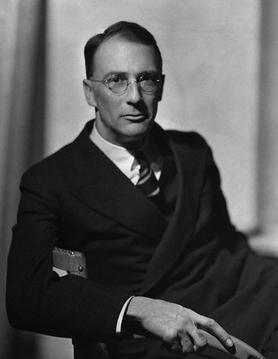
Cecil Louis Troughton Smith, known by his pen name Cecil Scott "C. S." Forester, was an English novelist known for writing tales of naval warfare, such as the 12-book Horatio Hornblower series depicting a Royal Navy officer during the Napoleonic Wars.

The Battle of Trafalgar was a naval engagement that took place on 21 October 1805 between the British Royal Navy and the combined fleets of the French and Spanish Navies during the War of the Third Coalition of the Napoleonic Wars (1803–1815).
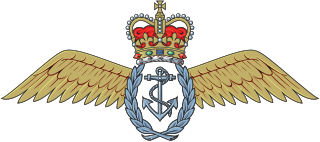
The Fleet Air Arm (FAA) is the naval aviation component of the United Kingdom's Royal Navy (RN). The FAA is one of five RN fighting arms. As of 2023 it is a predominantly "rotary" force, with helicopters undertaking roles once performed by biplanes such as the Fairey Swordfish. It operates the F-35 Lightning II for maritime strike and the AW159 Wildcat and AW101 Merlin for commando and anti-submarine warfare.

Admiral Sir Robert Calder, 1st Baronet, was a British naval officer who served in the Seven Years' War, the American Revolutionary War, the French Revolutionary Wars and the Napoleonic Wars. For much of his career he was regarded as a dependable officer, and spent several years as Captain of the Fleet under Admiral Sir John Jervis. However, he is chiefly remembered for his controversial actions following the Battle of Cape Finisterre in 1805 which resulted in his court-martial. Though he was removed from his sea command, he was retained in the Navy and later served as Commander-in-Chief of the base at Plymouth.

HMS Pegasus was a 28-gun Enterprise-class sixth rate. This frigate was launched in 1779 at Deptford and sold in 1816. Pegasus had a relatively uneventful career and is perhaps best known for the fact that her captain from 1786 to 1789 was Prince William Henry, the future King William IV. By 1811 Pegasus was a receiving ship at Chatham; she was sold in 1816.
Captain Geoffrey Martin Bennett,, was a British Royal Navy officer and author.
Admiral Sir Robert Barlow GCB was a senior and distinguished officer of the British Royal Navy who saw extensive service in the American Revolutionary War, the French Revolutionary Wars and the Napoleonic Wars. He made his name in small ship actions, especially fighting French frigates, of which he captured three. In his later career Barlow served as comptroller of the Navy and was influential at the Admiralty right up to his death. Although born to a middle-class family, Barlow and his siblings made names for themselves and two of Barlow's daughters married into the naval aristocracy. His grandson, Robert Barlow, was a first-class cricketer and army officer.

William Brown was an officer of the British Royal Navy who served in increasingly senior positions during a long period from the American Revolutionary War, including the French Revolutionary War, and until the Napoleonic Wars. He began his naval career as a servant to Captain Philemon Pownoll in the frigate HMS Apollo and became a midshipman after two years. He then served on HMS Resolution with Lord Robert Manners and came home with him in HMS Andromache. He spent the next five years ashore in peacetime. After a brief time on HMS Bounty he was taken off by the First Lord and moved to HMS Ariel before Bounty sailed. He was then moved to HMS Leander, where he was commissioned by Admiral Peyton in 1788. He later captained a series of ships serving in the Mediterranean Sea, the North Sea, the Channel Fleet and then the Mediterranean, again with Lord St Vincent. He captained HMS Ajax in the Blockade of Brest and the Battle of Cape Finisterre and then at Cadiz at Nelson's personal request. After Trafalgar he had a series of shore postings as Dockyard Commissioner at Malta and Shearness before being made Commander in Chief of the Channel Islands and then Jamaica where he died.

The Imperial Order of the Crescent was a chivalric order of the Ottoman Empire.

Admiral Sir William Domett, GCB was a senior officer of the British Royal Navy who saw extensive service during the American Revolutionary, French Revolutionary and Napoleonic Wars. Throughout his career, Domett was under the patronage of Alexander Hood, later Lord Bridport. During his service Domett was appointed as flag captain by several admirals, and saw action numerous times in this capacity, including seven years in command of HMS Royal George. He went on to be First Naval Lord and then Commander-in-Chief, Plymouth during the closing stages of the Napoleonic Wars. Later in life, ill-health forced early retirement and Domett retired to his country estate in Hawkchurch, Devon, close to Lord Bridport's estates.

Admiral Sir Robert Brice Kingsmill, 1st Baronet was an officer of the Royal Navy who served during the Seven Years' War, the American War of Independence and the French Revolutionary and Napoleonic Wars in a career that spanned nearly 60 years. Kingsmill was a contemporary and close friend of Lord Nelson, and was one of the prominent Royal Navy admirals of his time referred to as "The Conquerors of the Seas", illustrated in Piercy Roberts' 1800 engraving. He served with Rodney in the West Indies, where he was wounded in battle, and with Keppel at the Battle of Ushant. He took the time to embark on a career in politics as a Member of Parliament, giving this up several times to resume his service in the Navy when war broke out. Kingsmill rose to flag rank by the time of the outbreak of war with revolutionary France in 1793. As the naval commander-in-chief on the coast of Ireland, he repelled several attempts by the French to invade Ireland and foment insurrection. Kingsmill died on 23 November 1805 at Sydmonton Court as a baronet and with the rank of Admiral of the Blue.
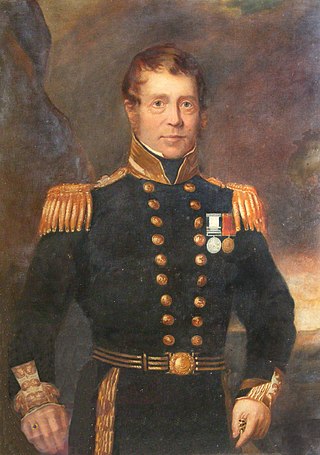
Admiral John Carter son of Thomas Carter and Catherine Butler of Castlemartin Co Kildare and grandson of Henry Boyle Carter, was an officer of the Royal Navy, who saw service during the French Revolutionary and Napoleonic Wars.
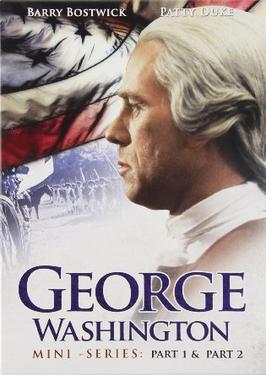
George Washington is a 1984 American biographical television miniseries directed by Buzz Kulik. The series, in three parts, chronicles the life of George Washington, the first President of the United States from the age of 11 to the age of 51. George Washington is based on the biography by James Thomas Flexner.

The action of 23 August 1806 was a minor naval battle of the Napoleonic wars, fought off the coast of Spanish Cuba near the port of Havana. The Spanish frigate Pomona was captured by the frigates HMS Anson and HMS Arethusa under the commands of Captain Charles Lydiard and Charles Brisbane respectively. As well as the frigate being captured, a shore battery was silenced and a fleet of gunboats was defeated.

The Commander-in-Chief, North Sea, was senior appointment and an operational command of the British Royal Navy originally based at Great Yarmouth from 1745 to 1802 then at Ramsgate from 1803 until 1815.
Triton is a British period television drama series which aired in four parts on BBC 1 in 1961. Set during the Napoleonic Wars, two Royal Navy officers go on an undercover mission to France discover Napoleon's secret weapon for his planned invasion of Britain. It turns out to be a submarine designed by the American Robert Fulton, widely credited as the inventor of the first steamship.
Triton is a British period television drama series which aired in four parts on BBC 1 in 1968. It is a remake of the 1961 BBC series of the same title about two undercover Royal Navy officers attempting to discover the secret weapon with which Napoleon plans to invade England. It turns out to be an early submarine designed by the American inventor Robert Fulton. It was followed by a sequel Pegasus in 1969.
Paul Grist is a former British television actor. He also appeared in a handful of films such as Under Milk Wood and Are You Being Served?.
The Adventures of Peter Simple is a British period adventure television series which aired in six parts on BBC 1 in 1957. It stars Timothy Bateson in the title role, a midshipman in the Royal Navy at the time of the Napoleonic Wars. It is based on the 1834 novel Peter Simple by Frederick Marryat.
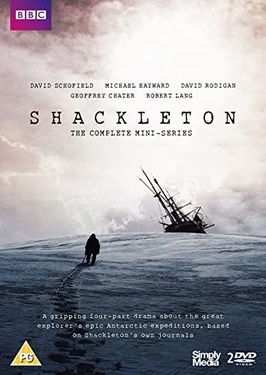
Shackleton is a British period television drama series which aired in four parts on BBC 2 in 1983. It portrays the Antarctic expeditions of the explorer Sir Ernest Shackleton. Scriptwriter Christopher Ralling drew on Shackleton's own journals, which were re-published by the BBC as a tie-in to the series.
References
- ↑ Baskin p.91